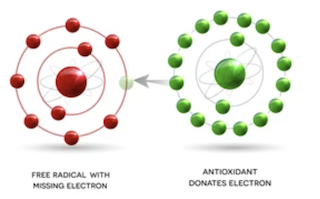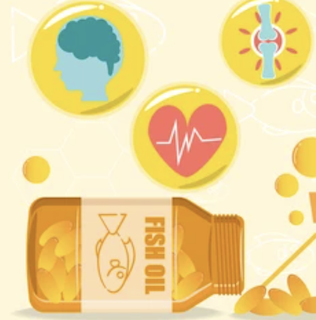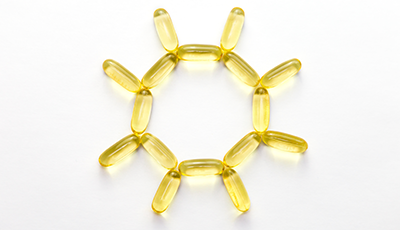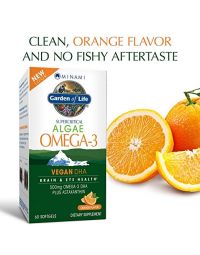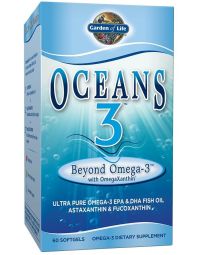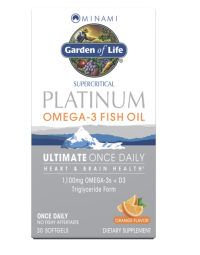Krill oil is a newer supplement that has been shown to be a source of omega-3s, much like the more well-known fish oil supplement. While they may seem very similar on the surface, there are many differences that should be considered before deciding which will be your omega-3 supplement.
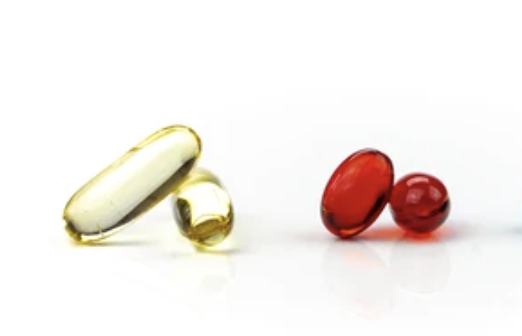

Krill Oil is From Shrimp Crustaceans, Fish Oil is From Fish
Fish oil has long been the go-to for omega-3 supplementation, but recently there have been concerns over its use regarding the risk of toxin accumulation, the decline of fish populations, and even the taste. Krill oil is being investigated as an alternative to alleviate some of these concerns.
Fish oil and krill oil supplements are mainly used to increase the amount of fatty acids in the body. These fatty acids are known as EPA and DHA. A steady amount of EPA and DHA in the body has been shown to promote improvement of disease outcomes and support overall health. EPA and DHA are also not naturally produced in the body, so outside sources are needed to get the proper amounts. This is where adding omega-3 rich foods or supplements to your diet come into play.
The first big difference between krill and fish oil is how they are made. While fish oil is typically derived from fatty fish, krill oil comes from a small shrimp-like crustacean called the Antarctic krill. The Antarctic krill is a staple in many animals’ diets, such as whales and birds.
Another difference is that the EPA and DHA in krill oil are typically stored in the form of phospholipids, while the EPA and DHA in fish oil is typically in the form of triglycerides or monoglycerides. Phospholipids are more rigid than triglycerides or monoglycerides, making cell membranes tougher. As krill oil is newer than fish oil, there are not many studies that investigate the effects of a more rigid cell membrane.
The main concern with using fish oil as a source of omega-3s are the impacts on declining fish populations. Many wildlife organizations report about 75% of the world’s wild fish populations are removed quicker than they’re replenished. Using krill to derive omega-3s is thought to avoid this issue, but it can cause a worse one. Krill are at the bottom of the food chain, providing nutrients to not only whales and seabirds, but all the fish that will get used for fish oil. If the krill population becomes too low, we could see that reverberate through many marine animals. A positive for fish oil is that vegan options are being heavily researched, as there is much more evidence on fish oil.
Another concern over using fish oil is contamination. The larger the fish, the more likely the risk of toxins. As krill are at the bottom of their food chain, it is believed they don’t have time to accumulate as many toxins. The main toxin of concern is mercury, with salmon and catfish being among the fish with the lowest mercury counts. You can combat this issue by ensuring that any products you consume have passed the Global Organization for EPA & DHA Omega-3s (GOED) standards for purity or have been verified by a third-party. This will ensure that the products you are using have passed government requirements for purity and quality.

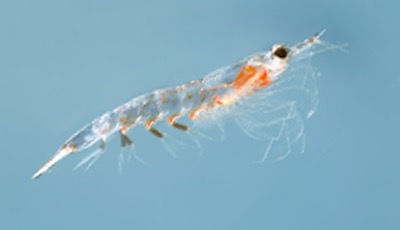

Krill Oil Has More Antioxidants Than Fish Oil
The main benefit of krill oil over fish oil is that it contains more antioxidants than fish oil. Antioxidants work in the body to protect from oxidative stress. Oxidative stress happens when there is an imbalance of free radicals to antioxidants in the body. Free radicals can be caused by pollution, radiation, and even diet. If your free radical exposure is high, it is important to consume enough antioxidants to combat them. Oxidative stress can lead to cell damage, fatty tissue damage, and even DNA damage.

Fish Oil Is Cheaper and Has More Science Behind It
Perhaps the greatest benefit of fish oil is that it has been around longer than krill oil. This makes it cheaper and more accessible than krill oil. This also means there are more studies and research on fish oil’s benefits and effects. Supporting heart health, healthy heart rhythms, healthy cholesterol levels, and healthy triglyceride levels are reported in studies on fish oil. There are even studies investigating the effects fish oil can have on improving mental health.

Krill oil Has Astaxanthin, but Heart Benefits Are Not Yet Proven
Krill oil contains astaxanthin — an antioxidant that gives cooked crustaceans their red color. It is also reported to increase HDL cholesterol, considered the “good” cholesterol, with good heart health being associated with higher values in the body. Because the investigation into krill oil is limited, the clinical benefits of astaxanthin intake are still unclear. The information on krill oil’s impact on overall triglyceride levels is sparse, with the available data indicating only modest changes.
Studies have found that fish oil promotes an increase in HDL cholesterol, and can lower triglycerides by an estimated 15-30%. Fish oil reportedly leaves LDL cholesterol levels unchanged but increases the size of LDL cholesterol particles. This is seen as beneficial, as smaller LDL cholesterol particles are linked to a higher risk with atherosclerosis (the narrowing of arteries due to a buildup of plaque). Atherosclerosis is dangerous as it disrupts blood flow to important areas of the body, possibly leading to a stroke or a heart attack.

Krill Oil is More Polluted. Fish Oils Can Have Pollutants Removed
In recent studies more contaminants have been found in krill oil versus fish oil. Persistent organic pollutants (POP) are pollutants that accumulate in marine ecosystems. POP toxin levels were compared between the two. Krill oil was ranked as containing an intermediate level of POP contaminants, where fish oil was reported to have POPs efficiently removed through their purification processes.
Another difference is that krill oil is only available as a supplement, which comes mainly in softgel capsule form. Fish oil is available as both a prescription and a supplement, in a variety of formulations including softgels and liquids.


Krill Oil is Less Efficient At Delivering EPA and DHA
As mentioned earlier, the phospholipid forms of EPA and DHA exist in krill oil while the triglyceride and monoglyceride forms exist in fish oil. The phospholipid forms have been shown to be less efficient at delivering EPA and DHA to the body compared to the triglyceride or monoglyceride forms. This means you will be getting less omega-3 fatty acids from krill oil compared to fish oil, even if the krill oil you take contains the same amount of EPA and DHA as the fish oil. Therefore, a smaller dose of fish oil is needed than krill oil to obtain the proper amounts of EPA and DHA.

Summary - Fish Oil Is Better Than Krill Oil
Arguably, the most important difference is the amount of omega-3s in each pill. In krill oil, there is typically between 45-200 mg per softgel. In fish oil, there is typically between 300-2,250 mg per softgel formulation. This also means you must ingest more krill oil to get the same amount of omega-3s as you would from fish oil.
Therefore, Fish Oil Wins. It is a more pure form of receiving EPA And DHA and there is the science behind it to prove that it really works.
FAQ: Fish Oil vs. Krill Oil
Krill oil has been reported to cause heartburn, decreased appetite, bloating, diarrhea, nausea, and stomach upset. It can also cause an allergic reaction if you have an allergy to crustaceans or shellfish. Krill oil can also slow blood clotting, causing issues for people who have bleeding disorders or are having surgery. It may also lower blood sugar levels, which can cause adverse effects in people with diabetes.
The largest complaint about taking fish oil is typically bad smell and taste, although there are now odorless and coated capsule options. Reported side effects include heartburn, loose stools, irregular heartbeat, indigestion, burping, and nosebleeds. Fish oil can cause an allergic reaction if you are allergic to fish or shellfish. Taking high doses can also cause bleeding, so if you have a bleeding disorder, you are encouraged to talk to your healthcare provider before taking fish oil.
References
- Backes J, Howard P. Krill Oil for Cardiovascular Risk Prevention: Is it for Real? Hosp Pharm. 2014;49(10):907-912.
- Engström K, Saldeen A-S, Yang B, Mehta JL, Saldeen T. Effect of fish oils containing different amounts of EPA, DHA, and antioxidants on plasma and brain fatty acids and brain nitric oxide synthase activity in rats. Upsala Journal of Medical Sciences. 2009;114(4):206-213.
- Ilic M. A Look at Krill Oil’s Benefits. Cleveland Clinic. Published 2021. Accessed January 28, 2022.
- Marengo K, Nall R. Krill oil vs fish oil: Which is better and why?. Medical News Today. Accessed January 28, 2022.
- Oelrich B, Dewell A, Gardner C. Effect of fish oil supplementation on serum triglycerides, LDL cholesterol and LDL subfractions in hypertriglyceridemic adults. Nutrition, Metabolism and Cardiovascular Diseases. 2013;23(4):350-357.
- Ulven S, Holven K. Comparison of bioavailability of krill oil versus fish oil and health effect. Vasc Health Risk Manag. 2015:511.
- Ulven S, Kirkhus B, Lamglait A et al. Metabolic Effects of Krill Oil are Essentially Similar to Those of Fish Oil but at Lower Dose of EPA and DHA, in Healthy Volunteers. Lipids. 2010;46(1):37-46.
-
Cod Liver Oil vs Fish Oil
By Dr. AnnaMarch 8, 2022 -
Omega 3 Acid Ethyl Esters – Time to Upgrade Omegas
By Chemist BillMarch 8, 2022 -
Vegan Fish Oil Supplements
By Dr. KarenMarch 8, 2022 -
Fish Oil for Weight Loss
By Dr. KarenMarch 8, 2022
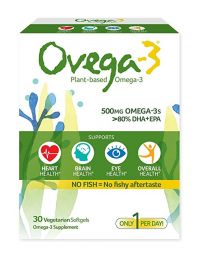
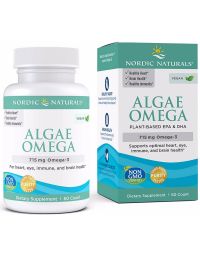
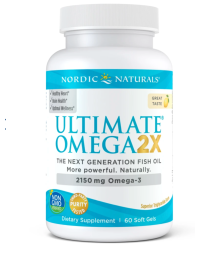
Search the blog
Article Categories
- All Articles (95)
- Rating Charts (1)
- Beauty & Skincare (17)
- FAQ (0)
- Hair Care (9)
- Health & Wellness (12)
- Anti-Aging (4)
- Kid's Health (0)
- Makeup (2)
- Men's Health (2)
- Oral Care (3)
- Sunscreen (7)
- Skin Tools & Treatments (10)
- Supplements (26)
- Videos (0)

